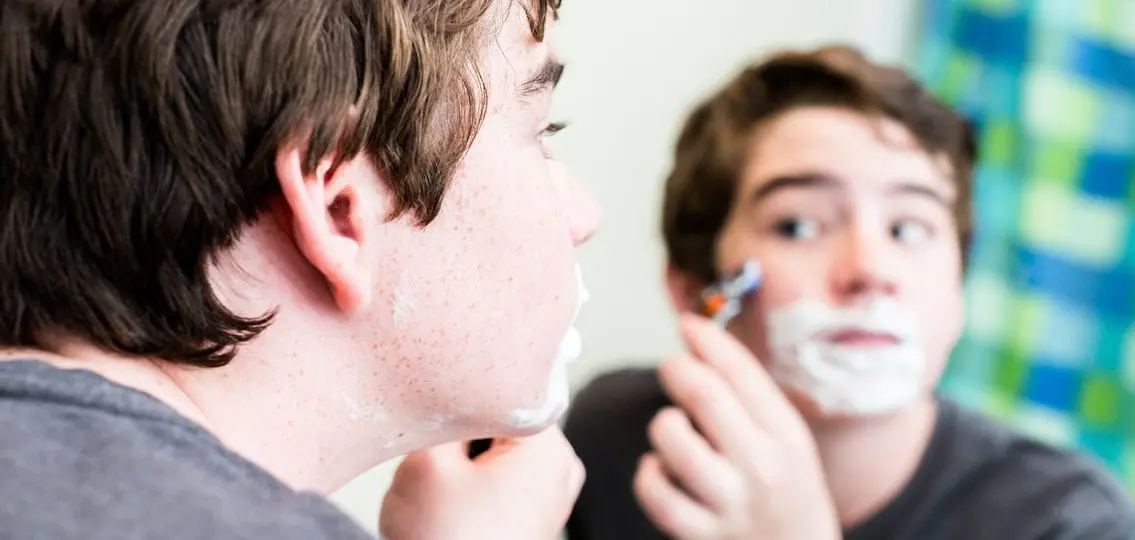When you see a title that includes the word puberty does your hair stand on end? Well, you’re hardly alone. When I talk about this magical time—yes, I said magical—I get more than a few raised eyebrows. Isn’t puberty when a once sweet-tempered child morphs into a beast? Yes, it can be, but understanding everything that’s behind that behavior can make it much more tolerable and even—I’ll say it again—magical.

Here are some things to know about puberty that may help you to help your teen (and yourself) survive this time with less fear and more confidence.
The Timing of Puberty
The timing of the physical changes may differ, but the changes are the same for everyone. Not everyone goes through their physical changes at the same time, but once the changes begin everyone progresses through all of the stages in the same way.
In general, boys enter puberty later than girls and their growth spurt is at a later stage of puberty than girls. In general, girls are bigger and more emotionally mature at an earlier age than the boys.
Some kids can be late bloomers and some can be early bloomers. When puberty comes at the extremes of the expected ages—which is between 8 and 13 for girls and 9 and 14 for boys—there can be a lot of anxiety. Parents whose children fall into the early or late bloomers categories can help their children by emphasizing that it’s okay to grow a little differently.
If you have an early bloomer or a late bloomer, it’s important to be supportive of activities that may seem out of place compared to other children of the same age, but are in line with your child’s level of development. For example, an early bloomer girl may not get nearly the enjoyment playing Barbie as she might an intellectual challenge, like a journal. Your late bloomer son may not have any interest in teen social events and still prefers sitting on the sofa with a friend playing his video games.
Less Self-Control
The brain really does change during puberty, leaving teens with less self-control.
Why do teens make so many poor choices? How is it that your child can seem so mature at one moment and act so brainless the next? This issue can cause parents to really lose it and the anger stems predominantly from the fact that their son or daughter knows better and was raised better. What if I told you that it has nothing to do with what they know and how they were raised? In fact, how they behave sometimes has little to do with intellect and values, and everything to do with the developing brain and its inability to self-regulate at times.
Emerging science demonstrates that some areas of the brain develop earlier, while other areas take longer to develop. For instance, the impulsive area, known as the Amygdala, develops earlier than the Prefrontal Cortex, which is the area responsible for higher reasoning. The different rates of development may contribute to a teen’s inability to make responsible decisions when faced with a strong urge. It isn’t just that they are impulsive and without self-control, but are, in fact, driven by a part of the brain that is firing without its main control center.
3 Tips for When Your Teen Goes Through Puberty:
1. Don’t take it personally!
Your teen going through puberty is still that wonderful kid you’ve been loving all along. There’s a lot going on, and it’s not about you!
Puberty is the gateway to adulthood and, in order to get there, kids must figure things out for themselves. Figuring things out means figuring it out their way, not your way. But when the dust settles, teens tend to return to the values of the family.
2. Your teen will be confused.
You understand the changes of puberty, your child does not. Understanding means that you can anticipate some of what will happen next and why. Not so for your teen.
3. Stay positive.
There are no mistakes and no failures—just lots and lots of teachable moments to help shape your emerging adult. Keep it positive, keep it non-judgmental, be available and always model the behavior that you want to see in your child.
Teens don’t confide in their parents when they fear disappointing you. Try to be less judgmental and they will seek out your advice much more.

It is magical to develop from child to adult. The more that you internalize that belief, the more that you can enjoy the ride!




